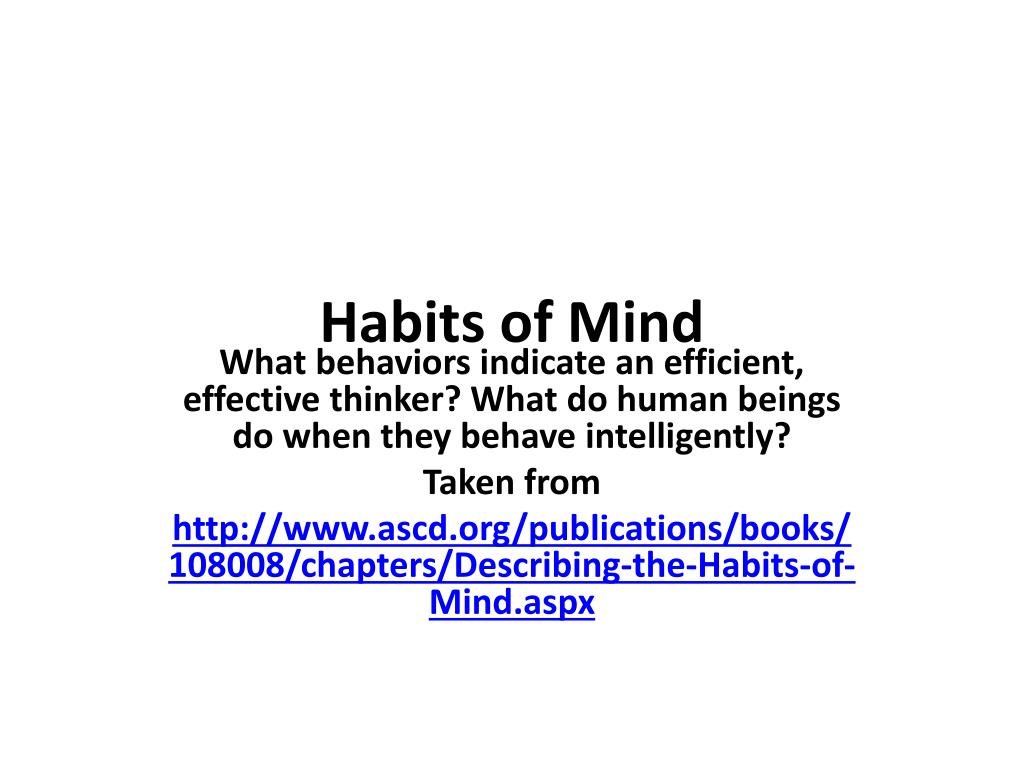
Jenkins H III (1992) Textual poachers: television fans & participatory culture.
#3 scientific habits of mind software#
Hayes E Games I Learning through game design: a review of current software & research. Gee JP (2003) What video games have to teach us about learning and literacy.

Retrieved Octofrom įriedman TL (2005) The world is flat. Sch J 14(3):77–80ĭewey J (1910) Science as subject matter and as method. doi: 10.1207/s15327809jls0603_1Ĭhinn CA, Malhotra B (2002) Epistemologically authentic inquiry in schools: a theoretical framework for evaluating inquiry tasks. Retrieved Novemfrom Ĭhi MTH (1997) Quantifying qualitative analyses of verbal data: a practical guide. Educ Technol 45(1):15–21īarab SA, Sadler T, Heiselt C, Hickey D, Zuiker S (2007) Relating narrative, inquiry, and inscriptions: a framework for socio-scientific inquiry. Oxford University Press, New Yorkīarab S, Arcici A, Jackson C (2005) Eat your vegetables and do your homework: a design-based investigation of enjoyment and meaning in learning. Over half of the posts evidenced systems based reasoning, one in ten evidenced model-based reasoning, and 65% displayed an evaluative epistemology in which knowledge is treated as an open-ended process of evaluation and argument.Īmerican Association for the Advancement of Science (1993) Benchmarks for science literacy. Eighty-six percent of the forum discussions were posts engaged in “social knowledge construction” rather than social banter. In particular, we examine the scientific habits of mind and dispositions that characterize online discussion forums of the massively multiplayer online game World of Warcraft. This paper presents empirical evidence about the potential of games for fostering scientific habits of mind. Recent research on informal games-based learning indicates that such technologies and the communities they evoke may be one viable alternative-not as a substitute for teachers and classrooms, but as an alternative to textbooks and science labs.

Yet, by some measures, we have done a poor job at fostering scientific habits of mind in schools. In today’s increasingly “flat” world of globalization (Friedman 2005), the need for a scientifically literate citizenry has grown more urgent.


 0 kommentar(er)
0 kommentar(er)
